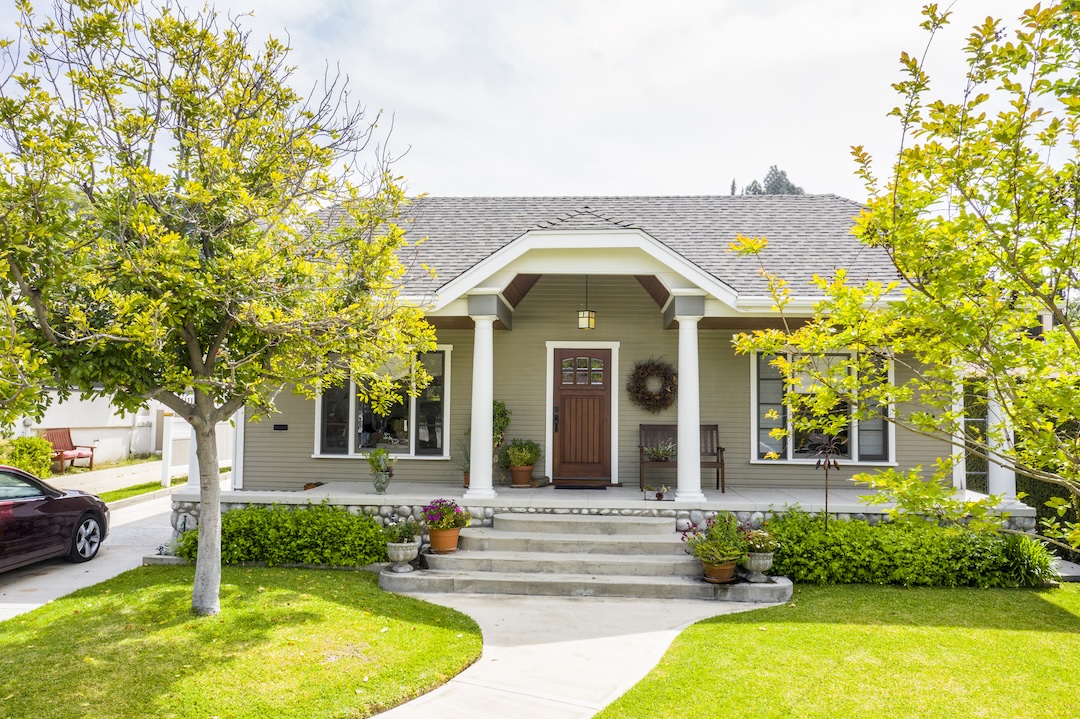
Key takeaways:
- Lots of things influence home prices, but the ones you have the most control over have to do with the condition of your home.
- Being proactive about maintenance and upkeep, and taking an interest in your community and neighborhood can pay off.
Since you’re poking around the blog pages of a company that offers an innovative way to profit from your stored up home equity, we’re guessing you already have a good idea of what home equity is. (It’s the value of your home minus any outstanding debts on it, like your mortgage.)
But what you may not know is exactly what makes up the value part of that equation. Just how and why do home prices rise – or fall?
- Location, location, location
One of the biggest factors is the one you probably know the best. Simply put, is your home in a place where people want to live? Does it have a nice climate, a good school system, recreation for all kinds of tastes? Does it have a strong job market and a low crime rate? You clearly can’t change your location once you’ve bought a home and settled down, but you might want to be involved in your community to help maintain the things that attracted you to the location.
2. Your home’s condition.
You have the most control over your immediate space. Make sure the interior is in good working order and that you have up-to-date windows, electrical wiring, and plumbing. Don’t forget floors and ceilings. If you have an attic or a basement, are they clean and usable? Is the home well-insulated? Have you considered making any additions or renovations to the home that might add value and function, such as an in-law suite or a covered porch?
As you probably know, the age of your property is a key determinant of value. Older properties may have lower values because the systems may be less energy-efficient or the home may require repairs. Updates you make can help combat that — and you’ll get to enjoy them, too.
3. Curb appeal
The exterior is just as important as the inside. Make sure you keep up with power washing and painting, as well as maintenance like cleaning the gutters. Keep surfaces like the driveway or front walk in good repair. In other words, it makes sense to make sure your home has curb appeal, even if you don’t want to sell it just yet.
4. Comparable properties
You may also want to keep an eye on your neighbors’ homes. Their condition, and how well they contribute to the cleanliness and overall good looks of the neighborhood, can have an indirect impact on how others value your property. And when homes that are roughly comparable to yours get sold, the prices they fetch have a direct impact on your home value.
5. The economy and beyond
Finally, don’t forget that big factors outside your property and your neighborhood may often have the biggest impact on whether home prices go up or down. If the job market is faltering, fewer people will feel comfortable buying a home. If mortgage rates are too high, more people may be priced out of the housing market.
That’s why it’s best to focus on the things you can control, and not stress about the ones you can’t. Keep your home in its best condition possible and contribute as well to your environment as you can and remember that home prices go up – and occasionally down.
If you’re looking for funding to improve your home’s condition or curb appeal, a home equity agreement (HEA) might be the answer. See how much you qualify for today.
The blog articles published by Unlock Technologies are available for general informational purposes only. They are not legal or financial advice, and should not be used as a substitute for legal or financial advice from a licensed attorney, tax, or financial professional. Unlock does not endorse and is not responsible for any content, links, privacy policy, or security policy of any linked third-party websites.”


